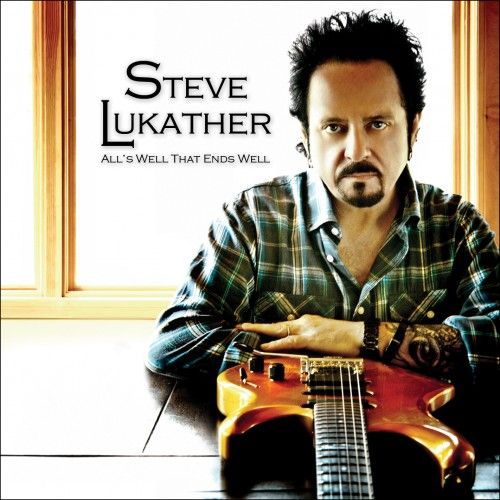Videos by American Songwriter
Steve Lukather
All’s Well That Ends Well
Mascot Records
[Rating: 3 stars]
In terms of ears and chops, Toto was among the greatest pop-rock bands America ever produced. The players were all top-notch young experts on their instruments, and they knew how to write catchy, almost arty material that used more than three chords per song without offending mainstream radio listeners. Men as well as women bought their records. The biggest criticism of the band was that they were…well, they were too white.
Steve Lukather was Toto’s highly respected guitar player, and when the band started to dissolve he was the one who kept it together, even becoming its lead vocalist for a while. For over 30 years Lukather championed the band, while working as a session man for legends like Michael Jackson and winning Grammy awards for songwriting (“Turn Your Love Around” by George Benson). Now Lukather is giving it a go as his own man with the new release All’s Well That Ends Well.
Lukather collaborates on most of the tunes here with keyboardist CJ Vanston, a hot player from L.A. who could have used more room to really play. Vanston’s patches and voicings are on the money, and serve as the perfect backdrop for the melodies and Lukather’s guitar, even if the songs themselves aren’t always that great. With lines like “52 it sure came fast” and “The years out here are 33 and change,” Lukather reminisces, or bemoans, a bit too much. Instead of looking forward to a career as a solo act, he almost sounds like he’s expecting everything to end soon. Even on the album’s best track, “Brody’s,” Lukather and songwriting legend Randy Goodrum gripe about the sorry state of the 21st century through the eyes of a bar patron doing “12 ounce curls,” the catchiest line on the record.
Lukather plays his butt off, as is expected. Sometimes he sounds like Eric Johnson or maybe a couple other players, but if this album does make one thing obvious, it’s that there really is a Steve Lukather style. One can hear obvious echoes of the solos from “Rosanna” or “Hold the Line.” Nothing here rivals the fire of his solo on Don Henley’s “Dirty Laundry,” but the Toto whiteness isn’t quite as bright, probably because this record is more about Lukather wants than what five other guys in the band think. Friends like Def Leppard’s Phil Collen and the Tubes’ Fee Waybill stop by to contribute background vocals, and Lukather wisely uses the same players on every track. In the end, this is a collection of cathartic songs by a great guitar player who, thankfully, has more soul on his ax than the critics gave him credit for.











Leave a Reply
Only members can comment. Become a member. Already a member? Log in.